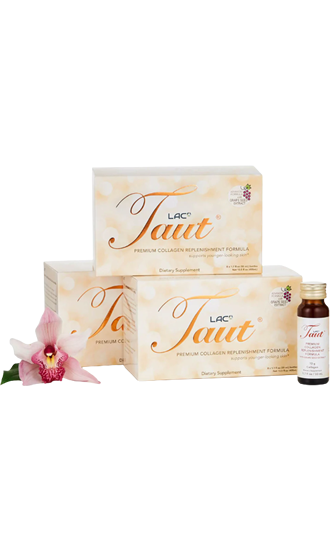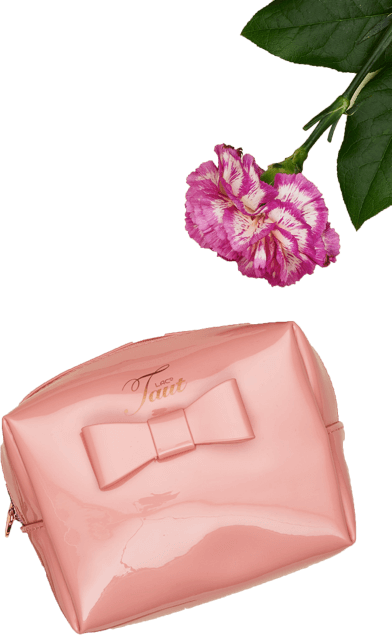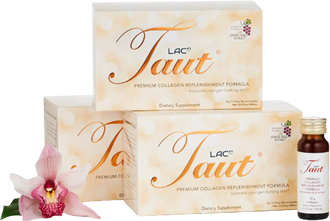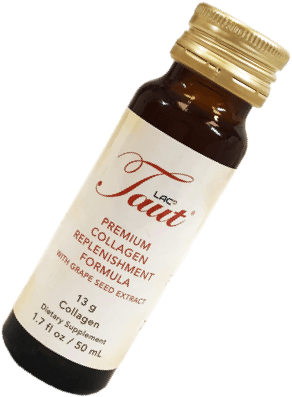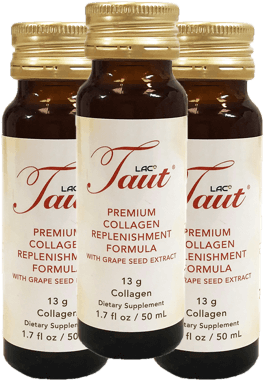Natural Remedies for Menopause: Best Relief, Help, Treatments, & Herbs!

Menopause is a term we either love or hate.
We love not having to deal with pesky periods and the discomfort that comes with them. Yet we hate the idea of menopause, as fertility also means "youth." When we cannot bear children anymore, psychologically, that usually means we are "old" and we have crossed over to the "other side."
Like wrinkles and age (and the increasing desire to sleep early and stay away from crowds!), menopause is an inevitable and completely normal part of getting older. Although symptoms will range from person to person, it’s common for women to experience health issues and side effects like thinning skin with more wrinkles, rapid weight gain, and faster aging.
For those of you who have not experienced menopause but are concerned as you are getting closer to this big change, it can be a little stressful not knowing what to expect, or how to manage this phase well.
In this article, we’ll talk about common menopausal symptoms, how they can change your body and health on the inside and out, natural remedies for menopause, and the best skin care products to keep you looking and feeling great.
For those of you who have already experienced menopause, we are here to share one of the biggest concerns facing all women: We still want our youthful skin, thick hair, just without the menopause symptoms, please!
Can you still have your youth without the monthly hassle? Absolutely! 50 is the new 30. 70 is the new 50. Read on to discover how!
The Onset: When Is the Menopause Age Range?
Menopause is defined as the end of a woman's menstrual cycle. The average age when menopause begins to occur for women in the United States is 51.
When does menopause start? For some, symptoms can start as early as in their 40's, while others may experience symptoms of menopause in their late 50's.
The average age of menopause is 48-55. If menopause occurs in women under 40, it’s considered premature menopause.
What Happens During Menopause?
Beginning in your late 30's, women start to produce less estrogen and progesterone—the hormones that affect and regulate menstruation.
Estrogen is a sex hormone that promotes the development of our female body functions and characteristics, which include our menstrual cycle, vaginal health, fertility, skin collagen, and oil production.
As these hormones decline, so does your fertility. As estrogen declines, less collagen is produced. Collagen is the protein that gives your skin its elasticity and keeps it healthy.
How Long Does It Last?
This can vary from person to person. According to the Cleveland Clinic for Women, this phase is described as when you stop having your period for one year.
What Are Common Symptoms?
First, the good news: Menopause isn't permanent and not everyone experiences the same symptoms. In some women, symptoms can be gone in as little as one year. For other women, menopause signs and symptoms can last even longer. The point is, every person experiences menopause differently.
In some cases, the symptoms may not be as bothersome for some women as for others. So, you never know where you’ll lie on the spectrum!
Even in the years leading up to menopause (perimenopause), you can begin experiencing some of the symptoms associated with the condition.
Early signs of menopause or perimenopause can include:
- Hot flashes and night sweats
- Irregular periods
- Issues with sleep
- Menopausal weight gain
- Mood swings, depression, anxiety
- Vaginal dryness
Whew! That’s a lot, isn’t it? But remember: you’re not necessarily going to experience all these symptoms, the severity depends on the person, and there are natural treatments for menopause to help you along the way.
How Menopause Affects Our Skin, Hair, & Body
Besides all the changes that cause mood swings, sleep disruptions, lifestyle changes, and fluctuations in energy levels, this hormonal change often affects the way we look, which can be challenging to deal with. In a society that prizes looks so highly, these changes may even cause stress or frustration.
The most drastic changes in appearance are caused by loss of collagen and decreased levels of certain hormones. Some of the most common symptoms that affect our skin, hair, and body include:
1. Loss of Collagen Results in Thinner, Dry, & Sagging Skin
Once menopause hits, collagen and elastin levels can go down drastically, as they are partly regulated by estrogen. Since collagen and elastin are proteins that keep skin tight and smooth, their loss can and does greatly affect the appearance of the skin, leading to common aging concerns like fine lines, deep wrinkles, and sagging along the jowls.
One of the ways to fight against this loss is to replenish your lost collagen with the best collagen supplement—like liquid collagen drinks.
2. Loss of Calcium Increases Chances of Brittle Bones (Impact on Bone Health)
One of the most perturbing effects of menopause is the loss of calcium and the impact on bone health. This is troubling because it can and does lead to osteoporosis, or brittleness in bones that may make them break or fracture much more readily. In fact, women can lose as much as 20% of their bone density about five years after experiencing menopausal changes. This is caused by a decline in the production of certain hormones, much like so many other symptoms of menopause.
Bone density can be preserved by exercise. Lifestyle changes like walking a few miles a day or doing low-impact aerobics can be helpful, as can strength training. Additionally, the foods in your diet may help preserve bone density. Foods like dark, leafy greens, milk, yogurt, cheese, legumes, and fish like salmon are all good sources of calcium. Taking calcium dietary supplements with vitamin D may help prevent calcium loss.
Collagen is another nutrient essential to bone health, as it forms the foundations of your bone marrow. Taking collagen supplements for joints may help prevent bone loss during menopause.
3. Dry and Itchy Skin
Hormones regulate collagen and oil production in our skin. When estrogen and progesterone become depleted during menopause, this leads to a hormonal imbalance, increasing the presence of the male hormone androgen, and leading to such uncomfortable and undesirable effects as dry and itchy skin.
That's why, as menopause approaches and estrogen production diminishes, dry, itchy skin becomes very common, says Doctor Elizabeth Tanzi, co-director of the Washington Institute of Dermatologic Laser Surgery.
In the 5 natural menopause treatments and remedies we have listed below, we will talk about plant-based estrogen that might just do the trick, as well as supplementing with collagen peptides and antioxidants.
4. Menopausal Weight Gain
Getting frustrated with the extra fat and weight building up? Sometimes it can feel like no matter what foods you eat or what your diet consists of, you just can't stop the unwanted fat around your abdomen and thighs from appearing. Fortunately, you have something to blame it on: Menopause.
What Causes Menopausal Weight Gain? (It May Not Be Your Diet)
One culprit, again, is the hormonal changes happening during menopause. And, as we age, our metabolic rate starts to drop. Not to mention mood swings, hot flashes, and other symptoms that may cause us to stress eat our favorite comfort foods. Unfortunately, the foods that we often turn to in times like these can influence our hormones and cause them to fluctuate, putting us at further risk of seeing changes in our weight.
5. Hyperpigmentation & Age Spots
If you’re experiencing menopause, the sun might not be the only thing to blame for those pesky dark spots! Hyperpigmentation is another skin issue that can result from menopause.
Estrogen can regulate melanin production, so you can see why declining levels of this hormone in the body can cause hyperpigmentation, which is a result of too much melanin. Sometimes hyperpigmentation can affect expectant moms, because of hormonal shifts during pregnancy.
Hyperpigmentation most often occurs on the face but can also affect the hands, chest, neck, and arms. Furthermore, menopausal skin can often become more sensitive to sunlight. Melanocytes, cells that produce melanin, can decrease due to a lack of estrogen, thereby creating less melanin to protect the skin from sunlight.
This can result in an overall lighter complexion in some cases, but also make it imperative to protect the skin from sun exposure.
6. Hair Loss
Thinning hair is another less-than-desirable side effect of menopause. Estrogen and progesterone are believed to make hair grow faster and fall out much less frequently. As these hormones are reduced during menopause, hair may thin in certain areas, particularly at the top and sides.
The good news? It's less likely that a woman will get bald spots like men. The decrease in estrogen and progesterone also produces more androgens, which are a group of male hormones that can shrink hair follicles. Sometimes, androgens can even cause unwanted facial hair growth even as they cause hair on the head to decrease.
7. Thinner Skin
Dry skin in women with perimenopause or menopause tends to occur as a result of the thinning of the epidermis, which is a result of decreased blood flow from a lack of estrogen. This decrease in blood flow can lead to trans-epidermal water loss (TEWL). As TEWL occurs, it can make skin appear less plump and radiant.
How can this impact your complexion? Well, dry skin often also leads to a greater prevalence of wrinkles. And, dry skin can be exacerbated by hot flashes.
8. Hot Flashes and Night Sweats (Hot Flashes Can Affect Your Skin)
Typically, women who are in menopause and perimenopause will experience hot flashes. Hot flashes can also affect your skin, causing considerable warmth in the face and leading to redness. Hot flashes can make one's complexion look ruddy and uneven. Often, hot flashes are accompanied by an overall heated feeling and profuse sweating. When hot flashes happen at night, they are called night sweats and they may have a negative impact on your sleep.
In fact, things like spicy foods can make hot flashes even worse. Fortunately, there are supplements and lifestyle changes that may help lessen the intensity of hot flashes.
8. Vaginal Dryness
Finally, one of the most common—yet not-so-talked-about—menopausal symptoms is vaginal dryness. And, it can be one of the most frustrating and debilitating symptoms of them all! Vaginal dryness occurs when oestrogen levels drop. This is because oestrogen is what keeps the vaginal walls properly lubricated.
Menopause Natural Treatments: Can You Prevent and Reduce Symptoms of Menopause?
We can take control of how we deal with this natural inevitable phase by fighting nature with nature.
Here are 5 natural cures for menopause to help reduce menopausal symptoms:
- Plant-based phytoestrogens to maintain healthy estrogen levels
- Exercise to improve and maintain muscle tone, reduce excess fat, and reduce hot flashes
- Collagen peptide supplements to increase and support skin collagen density
- Antioxidants to help prevent and reduce hyperpigmentation
- Essential oils, vitamins, and herbs
1. Soy: Nature's Plant-Based Phytoestrogens
Estrogen therapy has many benefits but the potential acute side effects and risk of breast cancer have many women wondering: Is this worth it?
The good news is Mother Nature offers natural plant-based phytoestrogens—most commonly found in soy—that have long been part of the Asian diet and medicine. Hormone therapy with plant-sourced phytoestrogens is still relatively new here in the West.
In recent years, foods containing soy, like soybeans, have been considered as a good source of plant phytoestrogens since they are one of the few foods that are rich in a particular type of plant phytoestrogens called isoflavones. These are compounds with a chemical structure similar to estradiol, the main phytoestrogens produced by a woman's ovaries.
If you want to substitute with plant-based phytoestrogens, how much soy should you eat?
Doctor Mark Messina, a women’s health doctor, says that there is enough evidence to suggest that a minimum of 25 grams of soy protein per day can help relieve certain symptoms and improve overall hormonal health. For comparison, people in Japan typically consume about 30 mg of isoflavones per day, mostly from tofu. Good sources of isoflavones include certain foods like whole soybeans, textured vegetable protein, soy flour, soy protein isolate, tempeh, and miso. 1
Soy, a natural menopause “medication”, has been shown to help:
- Reduce hot flashes and other menopausal symptoms
- Prevent calcium loss, which reduces the risk of breast cancer and osteoporosis
- Lower risk of heart disease, cardiovascular symptoms, and improve heart health 2
2. Exercise
Exercise is one of the most natural solutions to menopause, especially when it comes to reducing hot flashes. It’s great for preserving bone density, improving circulation, and increasing muscle tone.
Even walking 30 minutes a day or doing low-impact aerobics can be helpful, as can strength training. High-intensity workouts are especially beneficial as they trigger the release of the 'happy hormones'—the feeling of being 'high', which can help to fight menopausal anxiety, depression, and moodiness.
Research has shown that exercise may help the following symptoms of menopause:
- Increased muscle tone and tighter skin
- Reduced fat and weight
- Improved circulation
- Promotes feel good hormones that can help fight hormonal imbalances
- Helps relieve hot flashes
- Reduces mood swings
- Improves night sweats and overall sleep
3. Collagen Peptide Supplements to Slow Down the Loss of Collagen, Thinning Hair, & Accelerated Aging
One of the most effective methods to replenish your continuous depletion of skin collagen is by supplementing with collagen peptides.
Clinical studies have found that taking 10,000mg collagen peptides daily may help to reduce wrinkles and improve skin collagen density.
For menopause symptoms dealing with aging skin, thinning hair, and hair loss, try our Taut Collagen Maintenance Kit, or Taut Collagen Intense Transformation, which can be taken before, during menopause or postmenopause.
Each serving of Taut Premium Collagen Advanced Formula contains the highest available potency (13,000mg/serving) marine collagen peptides, with 6 skin-loving ingredients designed to visibly reduce signs of aging.
When you consume Taut Collagen Advanced Formula Drink, its high potency triggers the body's 'wound repair' response, which activates fibroblasts (specialized cells that produce collagen) to start producing new collagen. Discover how Taut Collagen can transform your skin.
Other ingredients include hyaluronic acid, elastin, grape seed extract, ceramide to replenish firmness, elasticity, moisture, and keep skin well hydrated. Vitamin C and grape seed extract can also help with hyperpigmentation by inhibiting melanin production. Grape seed extract acts as an antioxidant to help reduce free radical damage that causes collagen to deteriorate or degrade.
Benefits of A Collagen Treatment for Menopausal Symptoms Include:
- Firmer, fuller, and more radiant skin
- Thicker hair and nails
- Visibly reduced fine lines, wrinkles, and sagging skin
- Improves skin elasticity
- Helps prevent uneven pigmentation
- Promotes skin healing (bye-bye, hormonal acne scars)
- Helps reduce symptoms of eczema
Customers love to share their results:
Thanks, Taut!
"I had tried many collagens... powder, liquid, none of them like Taut! This is the best! I just turned 63 last week, and everybody says I’m 55. I don’t have wrinkles at all; my skin is smooth.. beautifully glowing! I'm now only taking 3 bottles in a week and that mask is amazing. and I have that once a week. I’m very happy with my Taut; will never or try others products anymore. Thanks to Taut!!!"
Taut is superior to everything I tried!
"Taut is outstanding. I noticed a significant difference in the texture of my skin. Over the years, I tried so many different creams, lotions, powder collagen etc and never saw the difference that I see with Taut. I have been using it for 60 days. Love the difference it has made!"
4. Antioxidants Help Reduce Hyperpigmentation
Try Taut Bright Bye-Bye Dark Spots. Our formula contains seven antioxidants that help prevent and treat free radical damage while also aiding in skin lightening.
Formulated with L-Glutathione, L-Cysteine, vitamin C, Olive leaf extract, Grape seed extract, and other ingredients that work together to combat hyperpigmentation, uneven skin tone, age spots, and signs of aging that can make a complexion look dull.
Results:
- Visibly reduces uneven pigmentation
- Lightens brown and dark spots on skin
- Lighter, fairer, luminous skin
Customers share their results:
Fabulous results!
"I have been taking the skin Bye-Bye Dark Spots Flawless luminous skin tablets
for about a month now. I have seen a difference in the tone of my skin as well as the dark under eye circles less visible. I was very impressed and excited to see that in the mirror. Although a bit pricey I think it's definitely worth it!"
5. Essential Oils, Vitamins, & the Best Herbs for Menopause
Instead of opting for hormone replacement therapy, some women choose natural remedies for menopause symptoms. Medicine and supplements for menopause often consist of herbal ingredients like evening primrose oil, black cohosh, red clover, and french pine bark extract. Some other popular ingredients included in natural menopause relief products include vitamin E and wild yam. Let’s take a look at these natural herbs for menopause:
Black Cohosh
Similar to evening primrose oil, black cohosh is a women’s health herbal medicine for menopause that may help relieve hot flashes and night sweats. Although there is not much research on the use of black cohosh as a herbal treatment for hot flashes and sweats, many women have claimed that this herbal treatment for menopause has helped them manage their menopause symptoms. In addition to hot flashes and night sweats, black cohosh has also been used as a treatment for painful menstruation and premenstrual symptoms. The only side effects that have been linked to the use of black cohosh were health problems in the liver. More research needs to be done on black cohosh to make it a safe alternative for women who are struggling with hot flashes and night sweats. 3
Red Clover
Herbal supplements that contain red clover are often used as a natural menopause treatment for symptoms like night sweats and hot flashes. On top of helping treat hot flashes, there’s evidence to show that red clover could help improve bone loss in women with menopause and perimenopause.
Additionally, red clover may have certain cardiovascular health benefits and may prevent heart disease. Research has also shown that red clover has blood-thinning properties and may prevent blood clots from forming. Evidence from this research on menopausal women who took herbal supplements containing red clover proved that the herb helped improve blood flow and strengthen arteries, reducing the overall chance of participants developing heart disease.
Although there has been no evidence of serious side effects, it’s important to check with your doctor before taking any herbal menopause relief supplements, like red clover, especially if you are undergoing hormone replacement therapy. 4
Evening Primrose Oil (Menopause Natural Treatment)
Similar to black cohosh and red clover, dietary supplements and other forms of natural medicine for menopause made with evening primrose oil may help women manage hot flashes. Studies have found that evening primrose oil when compared to a placebo, was able to reduce the intensity of hot flashes in menopausal women. 5
Vitamin E For Women’s Health
Vitamin E, a natural antioxidant, has been shown to be helpful for anyone going through menopause due to its high tocopherol and tocotrienol content. It has helped relieve menopausal symptoms when taken orally and applied topically. It’s been shown to improve everything from disrupted sleep, vaginal dryness, and various other symptoms. And, according to research from 2007, there is evidence to show that vitamin E can provide natural menopause help for women who are suffering from hot flashes. 6
French Pine Bark Extract Health Supplements
To fight the uncomfortable feeling of hot flashes and a few other menopausal symptoms, including vaginal dryness, many women have turned to French Pine Bark Extract. There is evidence to show that this antioxidant helps reduce cell damage and improves the health of the cells in menopausal women. Additionally, this antioxidant may act as an anti-inflammatory, improving blood flow throughout the body. 7
Not only can French Pine Bark Extract be used to support women’s health, but it also has been used for decades as a general health and beauty supplement, including our LAC Masquelier French Pine Bark OPC. Each tablet delivers powerful antioxidant benefits and healing properties to protect, preserve, and enhance your youth, vitality, and quality of life.
Look Your Best Before, During, & After Menopause With Taut
No matter what stage of life you’re going through, a boost of collagen along with powerful antioxidants can help you looking (and feeling) your best. To support your health and a younger-looking complexion, we recommend trying our Taut Collagen Anti-Oxy Foxy Kit. This Transformation Program combines the protective and healing properties of French Pine Bark Extract along with the anti-aging, skin-enhancing support of our Taut Premium Collagen Advanced Formula Drinks for a more radiant, age-defying appearance. It’s never too late to achieve a better you!
References
- Isoflavones and the Alleviation of Hot Flashes
- Soy Isoflavones Improve Cardiovascular Risk Markers in Early Menopause
- BLACK COHOSH: Overview, Uses, Side Effects, Precautions, Interactions, Dosing and Reviews
- Red Clover Information
- The effect of oral evening primrose oil on menopausal hot flashes
- The effect of vitamin E on hot flashes in menopausal women
- Pine bark extract may improve menopause symptoms



